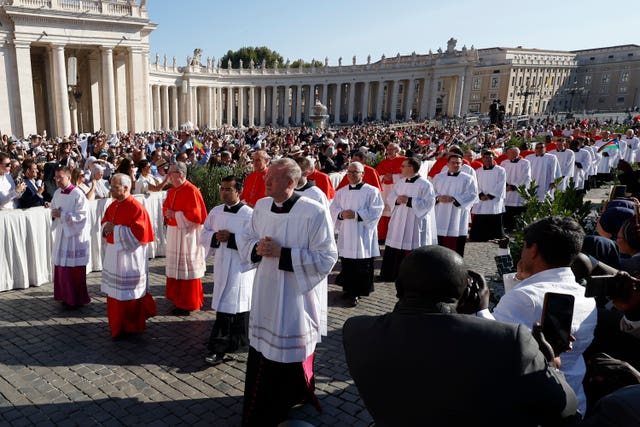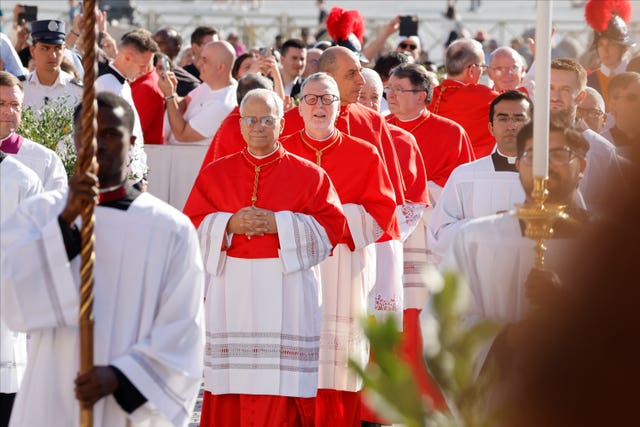
Pope Francis has presided over a ceremony to create 21 new cardinals, including key figures at the Vatican and in the field who will help enact his reforms and cement his legacy with the Catholic Church.
Among the new cardinals are the controversial new head of the Vatican’s doctrine office, Victor Manuel Fernandez, and the Chicago-born missionary now responsible for vetting bishop candidates around the globe, Robert Prevost.
Also receiving red hats were the Vatican’s ambassadors to the US and Italy, two important diplomatic posts where the Holy See has a keen interest in reforming the church hierarchy.

Leaders of the church in geopolitical hotspots like Hong Kong and Jerusalem, fragile communities like Juba and South Sudan, and sentimental favourites like Cordoba in Argentina completed the list.
The ceremony in St Peter’s Square took place days before Francis opens a meeting of bishops and lay Catholics on charting the church’s future, where issues such as women’s roles in the church, LGBT+ Catholics and priestly celibacy are up for discussion.
The synod taking place from October 4 to 29 is the first of two sessions that could cement Francis’s legacy as he seeks to make the church a place where all are welcomed, where pastors listen to their flocks and accompany them rather than judge them.
Several of the new cardinals are voting members of the synod and have made clear they share Francis’s vision of a church that is more about the people in the pews than the hierarchy. Among them is Mr Fernandez, known as the “Pope’s theologian” and perhaps Francis’s most consequential Vatican appointment in his 10-year pontificate.
In his letter naming Mr Fernandez as prefect of the Dicastery for the Doctrine of the Faith, Francis made clear he wanted his fellow Argentine to oversee a radical break from the past, saying the former Holy Office often resorted to “immoral methods” to enforce its will.

Rather than condemn and judge, Francis said he wanted a doctrine office that guards the faith and gives hope. He also made clear Mr Fernandez would not have to deal with sex abuse cases, saying the office’s discipline section could handle that dossier.
It was a much-debated decision given Mr Fernandez has admitted he made mistakes handling a case while he was bishop in La Plata, Argentina, and that the scale of the problem globally has long called for authoritative leadership.
With Saturday’s ceremony, Francis will have named 99 of the 137 cardinals who are under age 80 and thus eligible to vote in a future conclave to elect his successor.
While not all are proteges of the 86-year-old reigning pontiff, many share Francis’s pastoral emphasis as opposed to the doctrine-minded cardinals often selected by John Paul II and Benedict XVI.
Such a huge proportion of Francis-nominated cardinals almost ensures that a future pope will either be from among his cardinal candidates or will have secured their votes to lead the church after Francis is gone.
Europe still has the most voting-age cardinals with 52, followed by the Americas with 39 and Asia with 24.

Enjoy the convenience of having The Sunday Post delivered as a digital ePaper straight to your smartphone, tablet or computer.
Subscribe for only £5.49 a month and enjoy all the benefits of the printed paper as a digital replica.
Subscribe